I wrote this article in Japanese and translated it into English using ChatGPT. I also used ChatGPT to create the English article title. I did my best to correct any translation mistakes, but please let me know if you find any errors. By the way, I did not use ChatGPT when writing the Japanese article. The entire article was written from scratch by me, Saikawa Goto.
Introduction
Movies and books covered in this article


Three takeaways from this article
- An English historian from the UK who sues for “defamation” but insists that “the Holocaust never happened.”
- A story of how a woman confronts “blatant lies” and the struggle she faces.
- It makes us think about how to deal with facts and information.
Self-introduction article


Published Kindle books(Free on Kindle Unlimited)
“The genius Einstein: An easy-to-understand book about interesting science advances that is not too simple based on his life and discoveries: Theory of Relativity, Cosmology and Quantum Theory”
“Why is “lack of imagination” called “communication skills”?: Japanese-specific”negative” communication”
The quotes used in this article are based on notes taken at the movie theater from movies in Japanese and are not direct quotes from the foreign language original movies, even if they exist.
The quotes in the article were translated using ChatGPT from Japanese books, and are not direct quotes from the foreign language original books, even if they exist.
From an Unprecedented True Story in Which “Historical Facts” were Debated in Court, We Consider “What is Truth”
In January 2000, an unbelievable trial was held in the UK. The trial was about whether the Nazi Germany’s Jewish genocide, known as the “Holocaust,” actually happened or not.


In Japan, there are controversies over whether events that allegedly occurred during wartime, such as the “issue of comfort women” and the “Nanjing Massacre,” actually happened or not. However, these debates would be mainly academic or focus on victims seeking justice.
The trial of the “Holocaust,” on the other hand, was a completely different type of controversy. In this trial, two historians argued in a “courtroom” over whether the Holocaust actually occurred or not. It’s surprising to think that this is a true story.

However, just being surprised is not enough. I believe that this trial should be a starting point for thinking about “what is the truth.”
I think that as symbolized by the term “fake news,” which was frequently used by former President Trump, in modern times, “whether one wants to believe or not” has become a stronger factor in determining the “plausibility of truth” than “whether it is correct or not.”

However, we should still judge whether something is true based on whether it is right or not. This may seem like a very obvious statement, but I feel that modern society is so distorted that we have to point out such a natural thing.

From the strange and inexplicable outcome of the trial, I want you to rethink how you perceive information.

In this article, I intend to talk about both the movie and the original work.
First, an Introduction to the Contents
Why did the “existence of the Holocaust” become a subject of dispute in court? Let’s start with the story around that. The story involves two people: Deborah Lipstadt, a Jewish historian (and author of the original book), and David Irving, a British historian.
One day in 1995, Deborah, who was conducting historical research in the United States, received an express mail. It was sent by Penguin Books, a British publisher that published her book “Denying the Holocaust: The Growing Assault On Truth And Memory”.


In the letter she received, it said, “David Irving is trying to sue you for defamation.”
In “Denying the Holocaust,” she wrote that “Irving is a Holocaust denier,” which Irving claimed was defamation. However, Irving himself was known as a “Holocaust denier,” so Deborah thought this matter would not be a big deal and left it alone. But when she found out that Irving was actually trying to file a lawsuit, things become complicated.
The root of this complication lay in the difference between the legal systems of the United Kingdom and the United States. In the US, the burden of proof lies with the plaintiff. However, in the UK, the burden of proof lies with the defendant. Irving sued Deborah in the UK. If Deborah didn’t appear in court, she would automatically lose the case. So she had no choice but to accept the challenge.

Deborah wrote in “Denying the Holocaust” that “Irving is a Holocaust denier and his beliefs come from anti-Semitism.” And Irving is suing her for defamation. This means that Deborah must prove the following: “Irving is a Holocaust denier” and “he denies the Holocaust precisely because of anti-Semitic views.”
If this is disputed in court, inevitably the question of “whether the Holocaust actually happened or not” will become a point of contention. In fact, this is exactly Irving’s intention, and the purpose of this trial is to make the whole world know that “the Holocaust did not happen.”


That’s why Deborah can’t afford to lose. Being Jewish herself, she has to prevent the spread of the claims of a dishonest historian to the world.
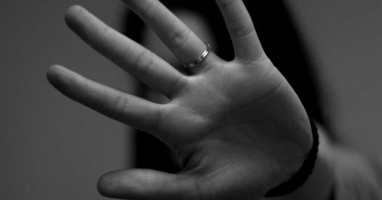
For that, the best legal team was formed for this purpose. The enormous cost of 1.5 million dollars was supported by the Jewish community. They meticulously examined Irving’s vast collection of works and letters and prepared for the trial with the help of various historians.
However, Deborah became greatly dissatisfied with the legal team’s strategy.
First, they decided not to make “whether the Holocaust happened” an issue. That, they said, would play right into Irving’s hands. They tried to break Irving’s credibility by showing what a discredited historian he is.
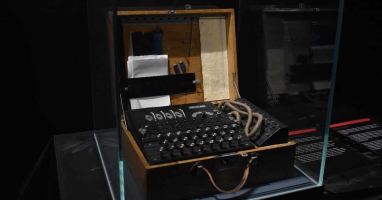
It means that as a Jewish person, she wants to strongly declare that “the Holocaust happened,” but it is forbidden for her to do so.
In fact, as a legal tactic, it was decided that Deborah would not be allowed to speak in court. She strongly objects, but is persuaded that it is necessary to do so in order to win the case.

Should We Believe the Claims of “Experts”?
We can’t become proficient in everything in the world, so it’s natural to seek the help of “experts” in areas where we lack knowledge.
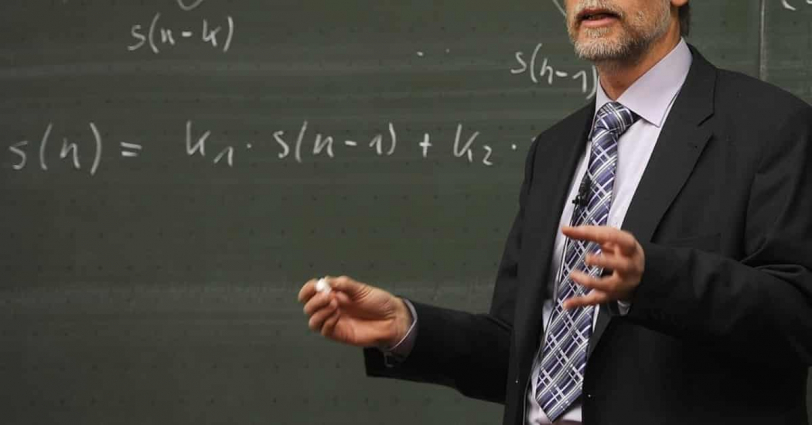
However, at the same time, we should strongly recognize that we can’t blindly accept the opinions of “experts” just because they are experts.

To be honest, Irving seems completely “crazy” in every way. I’ll touch on what kind of claims he makes later, but he boldly declares things that make you wonder, “Is he sane?” during the trial. In this trial, Irving did not have a defense attorney and represented himself on his own, so his verbosity reverberated in the courtroom. It’s like a speech given in court.
Such Irving is highly regarded as a historian. In the original book, there were voices of praise for Irving as follow:
Irving’s unwavering effort as a scholar cannot be praised enough.
“Denial” (Author: Deborah E. Lipstadt, Translator: Yamamoto Yayoi/HarperCollins Japan)
Irving has been unfairly ignored.
“Denial” (Author: Deborah E. Lipstadt, Translator: Yamamoto Yayoi/HarperCollins Japan)
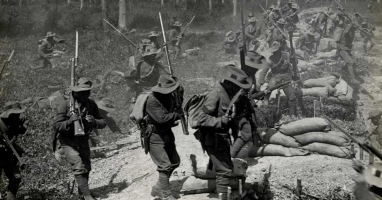
There are also people who evaluate the history books Irving wrote as follows:
Hitler’s War” is an excellent work that rivals the best books written about World War II.
“Denial” (Author: Deborah E. Lipstadt, Translator: Yamamoto Yayoi/HarperCollins Japan)
Of course, there are also people who speak ill of Irving, but he is recognized as a historian.

And that is precisely why this trial garnered attention. If the plaintiff were an unknown person, it might be dismissed as mere quibble. However, it is because Irving, who is recognized as an excellent historian, filed the lawsuit that the world became interested in its outcome.

I believe the fact that there are figures like Irving can influence the stance when touching on “expert claims.”

This work is presented from Deborah’s perspective, so there would be a possibility that it is intentionally treated to make Irving look bad. However, if they were to do that, they are stooping to Irving’s level. Deborah surely wouldn’t do that, and if we assume that, anyone can see that Irving is making “abnormal” claims.
Frankly, it’s hard to believe that anyone would trust what such a person is saying.
However, we know that there are many supporters of former President Trump. He also repeats “abnormal” claims, but there are surely many who believe them. If that’s the case, it’s not surprising that there are people who believe Irving’s claims.

You may not believe the claims of suspicious figures like Irving yourself. However, there is a possibility that you have accepted the claims of someone who is using “the claims of figures like Irving” as a basis for their own statements. Let’s say you are skeptical of person A but believe person B. However, there is always the possibility that person B is using the claims of person A as a basis for their statements.

It’s a situation that is difficult to avoid, but it’s important to be aware of it.
Now, let’s take a look at some of the “crazy claims” Irving made during the trial by quoting a few passages. Since only short quotes are extracted, many of the details are trivial, but in his exchanges with Deborah’s lawyer, he made even more outrageous statements.

“Rampton demanded that Irving provide evidence to support the description that Himmler was summoned to Wolf’s Lair. Irving immediately responded, “My excellent professional opinion on this matter is the evidence.” As Rampton looked through the documents in front of him, he raised his eyebrows in surprise. “What?” Irving said again. “My excellent professional opinion is the evidence. Would you like a more detailed explanation?” Judge Gray also seemed puzzled by Irving’s answer and asked if he could explain more since the meaning was unclear.”
“Denial” (Author: Deborah E. Lipstadt, Translator: Yamamoto Yayoi/HarperCollins Japan)

This is a scene where Irving, who was asked to provide evidence for a certain historical fact, claims that his opinion, as a superior expert, is the evidence. To put it simply, it makes no sense. Of course, the “evidence” mentioned here refers to “material evidence” such as letters, but Irving claims that “my opinion is the evidence.”

Rampton asked Irving how he knew that Göring was present and had wide eyes. Irving replied firmly, “That’s the privilege of the author”. “Are you saying it’s fabricated…fiction?” asked Rampton. Irving spoke in a lecturing tone, “When you write a book for people to read…you make efforts to make it easy to read…”
“Denial” (Author: Deborah E. Lipstadt, Translator: Yayoi Yamamoto/HarperCollins Japan)
It would not add up for someone who is suing Deborah for defamation to claim that the descriptions in his own writing are the “privilege of the author.” The more you learn, the more sympathy you feel for the Deborah camp who have to argue with such an abnormal person.

Rampton raised a question, “Why does Mr. Irving not mention a single word about this the outrageous way he has twisted the judicial system in his book?” Irving replied that addressing the matter would “add eight pages of garbage to the book”. Rampton disagreed, stating that “if there is no space to write the truth, then one should stop writing altogether”. Despite Irving’s protest that his own interpretation is the truth, Rampton moved on to the next item.
“Denial”(Author: Deborah E. Lipstadt, Translator: Yamamoto Yayoi/HarperCollins Japan)
Irving makes no mention of a certain historical fact in his writings. When this is pointed out to him, Irving replies, “My interpretation is the truth”. This is another amazing story. This is the very definition of “believing only what one wants to believe.

Even from the excerpt quoted here, you can sense how “crazy” Irving is. In fact, it’s even worse. And if you knew just how dangerous Irving is as a person, you’d be unlikely to believe any of his claims.
But that’s not the most important thing. Even if Irving is a really terrible person, most people who hear about the verdict of this trial through media won’t know that fact. In other words, it means that if Deborah were to lose the trial for any reason, Irving’s crazy claims could be spread throughout the world as “the claims of a historian recognized as correct in the trial.”
Deborah had to avoid that situation no matter what.
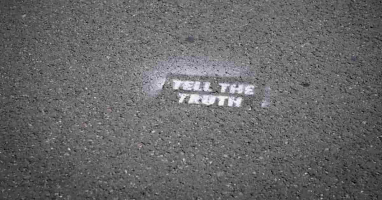
“Deborah” VS. “Deborah’s Legal Team”
Furthermore in this trial, Deborah had to fight not only Irving, but also her own legal team. She could not agree with the courtroom tactics her legal team had set up.


As mentioned earlier, Deborah faced two major obstacles: not being able to argue whether “the Holocaust happened or not” and not being allowed to speak in the court.
First, let’s focus on the former. In order to avoid falling into Irving’s tactics, Deborah’s legal team excluded the issue of “whether the Holocaust occurred” from the argument. Irving is a very eloquent person, and he uses his persuasive skills in court to point out the details of Deborah’s arguments. Through this exchange, he tries to create an impression that “the Holocaust did not happen” and undermine Deborah’s position.

They believe that having a historical dispute in the trial would only be to Irving’s advantage and increase their chances of losing. So they are not going to make it a point of contention.
However, Deborah is not satisfied with this. She believes that winning the trial is important, but at the same time, it is also important to argue that “the Holocaust is a historical fact.” She feels the weight of the Jewish community on her shoulders and believes that she must speak up.

On the other hand, there was concern that making “whether the Holocaust happened or not” the focus of the trial would raise other issues. To prove that it happened, the testimony of survivors would be necessary. However, if they were made to stand in court, they would undoubtedly be treated badly by Irving. The defense team was also worried about this.
However, Deborah believed that survivors should also be allowed to testify. This created a conflict between Deborah and the defense team’s strategy.

Furthermore, the latter tactic of “not letting Deborah speak” was a strategy that she found difficult to accept.
As the defense team, it was a natural approach. Since they were not making “whether the Holocaust happened or not” the point of contention, the testimony of historian Deborah was not particularly necessary. In the trial, they aimed to prove “how unreliable of a historian Irving is”. Therefore, there was not much that Deborah could testify to.
Additionally, the defense team had concerns that if Deborah spoke in court, she might make unnecessary comments provoked by Irving, who thinks “he wants to dispute whether the Holocaust happened or not”. Deborah is also an eloquent person, with many things to say about the Holocaust. However, if she made even the slightest mistake in her claims in court, Irving could exploit that weakness. As a courtroom tactic, it was not worth taking such a risk.

However, Deborah knew that by remaining silent during the trial, she would be seen in the following way:
A coward who ran away with her tail between her legs.
“Denial” (Director: Mick Jackson)

Irving spoke eloquently for himself, but Deborah remained completely silent. The very situation itself would be perceived as “losing” to her.
I wonder if others understand the pain of entrusting my conscience to someone else. Until now, I have lived in a way that absolutely does not entrust it to others.
“Denial” (Director: Mick Jackson)
She argued this, and it was not a situation that she could endure. However, one member of the defense team persuades her to accept it as a “compensation for winning.”

Thus, even though she was not completely satisfied with the situation, she decided to follow the strategy of her legal team as it was a “fight that could not afford to lose.”
The legal team was also putting in an incredible amount of effort to win. They were preparing to focus on “Irving’s credibility as a historian” as the main point of contention. They were thoroughly examining the extensive materials on Irving, including his past works, lectures given in various places, and Irving’s diary spanning 20 years, which was submitted through a disclosure request, in order to demonstrate how much “deliberate distortion and falsification” Irving has been engaged in, based on his writings.

It’s very frustrating that so much effort has to be put into dealing with someone as “crazy” as Irving, but that’s just how the law works in the UK, so there’s no choice. Again, if the trial were held in the US, Irving would have the burden of proving that Deborah had committed libel. Depending on the specifics of the lawsuit, it would be different, but this situation seems extremely unfair because I feel like Irving has the burden of proof in this trial.
After all the extensive preparations, they faced trial in January 2000.

Conclusion
Finally, let’s touch on the differences between the novel and the movie.
I felt that the novel was a bit verbose. There seemed to be so much the author wanted to say, resulting in a considerable number of pages, but as a reader, I felt that passion was a bit too much. Overall, I thought it would have been better if it were a bit more streamlined.
On the other hand, the movie is interesting because it focuses on the most important point, the trial, and depicts the whole story. If asked which is better, the book or the movie, I would answer the movie. In addition, the situation is quite complicated, and there may be parts that are not easy to grasp with the movie alone, so I recommend supplementing it with the book.

I fought to protect my own freedom of expression, to maintain a belief in the importance of the freedom of expression, and to defeat a man who lied about history, made contemptible remarks about Jews and other minorities.
“Denial” (Author: Deborah E. Lipstadt, Translator: Yamamoto Yayoi/HarperCollins Japan)
In her book, she laments that her long, hard-fought battle has not been fully understood. However, the trial undoubtedly dealt a blow to Holocaust deniers such as Irving. It was a difficult but extremely important fight.
When it comes to past history, the more it makes us feel guilty, the more we may want to look away and lean towards the theory that “it didn’t actually happen”. However, this is not necessarily the correct attitude.
This work makes us reconsider how we should approach facts and information, and can be seen as a piece that prompts such reflection.

Published Kindle books(Free on Kindle Unlimited)
“The genius Einstein: An easy-to-understand book about interesting science advances that is not too simple based on his life and discoveries: Theory of Relativity, Cosmology and Quantum Theory”
“Why is “lack of imagination” called “communication skills”?: Japanese-specific”negative” communication”

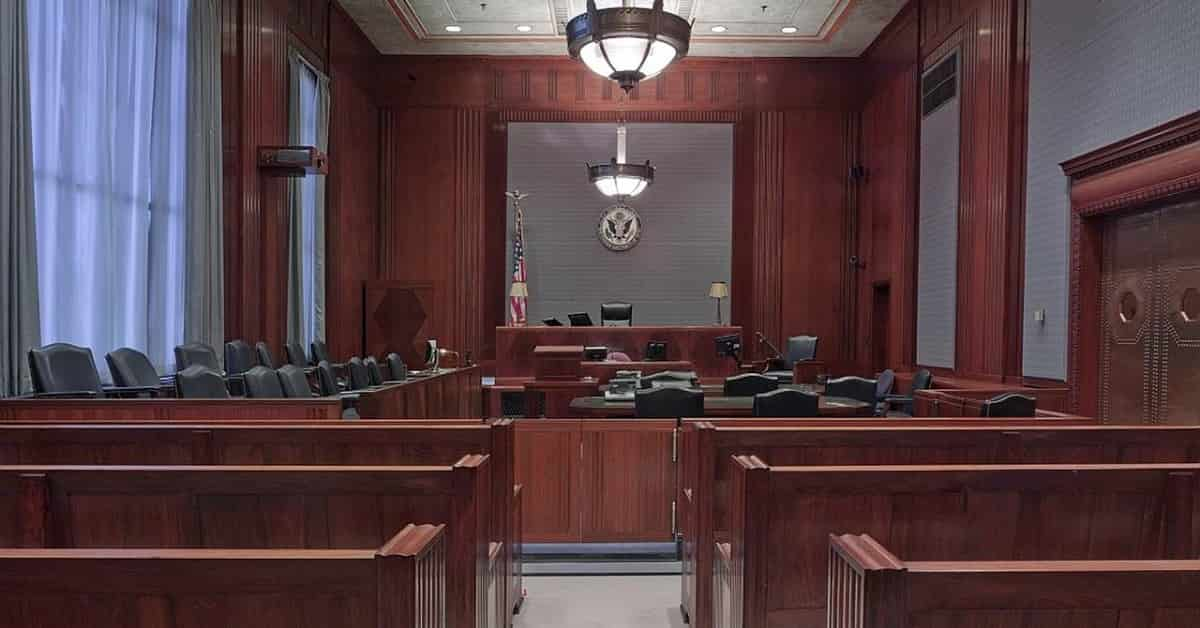





コメント